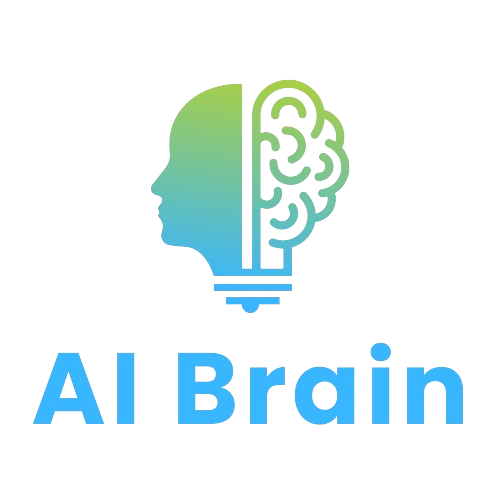In recent years, our homes have become smarter. From voice-activated assistants to smart thermostats, technology is changing the way we live. One area seeing a lot of exciting changes is the kitchen. With the help of artificial intelligence (AI) and robotics, smart kitchens are now a reality.

In this blog post, we’ll explore how AI and robotic chefs are transforming the way we cook and eat.
The Rise of Smart Kitchens
Smart kitchens use technology to make cooking easier, faster, and more enjoyable. They include devices that can connect to the internet, learn from our habits, and even make decisions for us. Imagine a refrigerator that knows when you are running low on milk and orders more for you. Or an oven that can perfectly bake a cake without you needing to check on it constantly. These are just some of the amazing things smart kitchens can do.
AI-Powered Appliances
At the heart of a smart kitchen are AI-powered appliances. These devices use artificial intelligence to understand and adapt to your cooking needs. For example, smart ovens can adjust cooking times and temperatures based on the dish you are preparing. They can even suggest recipes based on the ingredients you have at home. This not only saves time but also helps reduce food waste.

Another great example is the smart refrigerator. These refrigerators come with built-in cameras that let you see what’s inside without opening the door. They can also track expiration dates and suggest recipes to use up ingredients before they go bad. Some advanced models can even order groceries for you when supplies are running low.
The Robotic Chef Revolution
One of the most exciting developments in smart kitchens is the rise of robotic chefs. These robots can prepare meals from start to finish with little to no human intervention. They can chop vegetables, stir pots, and even plate dishes with precision.
Robotic chefs come in different shapes and sizes. Some are designed to work alongside human chefs, assisting them with repetitive tasks. Others are fully autonomous, capable of cooking complete meals on their own. Companies like Moley Robotics have developed robotic kitchen systems that can cook thousands of recipes with the touch of a button.

These robotic chefs use a combination of sensors, cameras, and AI to perform their tasks. They can recognize ingredients, measure quantities, and follow recipes just like a human chef. The advantage of robotic chefs is their consistency and speed. They can cook perfect dishes every time, without getting tired or making mistakes.
Benefits of AI and Robotic Chefs
The integration of AI and robotic chefs into our kitchens offers many benefits. Here are some of the key advantages:
- Convenience: Smart kitchens make cooking easier and more convenient. With AI-powered appliances and robotic chefs, you can prepare meals with minimal effort.
- Efficiency: AI can help optimize cooking processes, reducing cooking times and energy consumption. Robotic chefs can work faster than humans, making meal preparation quicker.
- Consistency: Robotic chefs can cook dishes to perfection every time. They follow recipes exactly, ensuring consistent results.
- Safety: AI and robots can handle dangerous tasks, like chopping vegetables or working with hot stoves, reducing the risk of kitchen accidents.
- Customization: AI can learn your cooking preferences and suggest personalized recipes. This makes meal planning easier and more enjoyable.
- Innovation: Smart kitchens open up new possibilities for culinary innovation. With AI and robotics, you can experiment with new cooking techniques and recipes.
Challenges and Future Prospects
While the rise of smart kitchens and robotic chefs is exciting, there are still challenges to overcome. One major challenge is cost. High-tech appliances and robotic systems can be expensive, making them less accessible to the average consumer. However, as technology advances and becomes more affordable, we can expect to see smart kitchens become more common.

Another challenge is the learning curve. Using AI-powered appliances and robotic chefs requires some technical knowledge. However, manufacturers are working on making these devices more user-friendly. With time, using a smart kitchen will become as easy as using a smartphone.
Looking to the future, the potential of AI and robotic chefs is limitless. We can expect to see even more advanced technologies in our kitchens. Imagine a kitchen where every appliance is connected, working together to create the perfect meal. Or a robotic chef that can learn new recipes from online cooking videos. The possibilities are endless.
Conclusion
Smart kitchens, powered by AI and robotics, are transforming the way we cook and eat. They offer convenience, efficiency, and innovation, making meal preparation easier and more enjoyable. While there are still challenges to overcome, the future of smart kitchens looks bright. As technology continues to advance, we can expect our kitchens to become even smarter, with robotic chefs becoming a common sight in homes around the world.
Whether you are a seasoned chef or someone who struggles to boil water, a smart kitchen can make your life easier. So, why not embrace the future and see what a smart kitchen can do for you? With AI and robotic chefs, the possibilities are endless.
